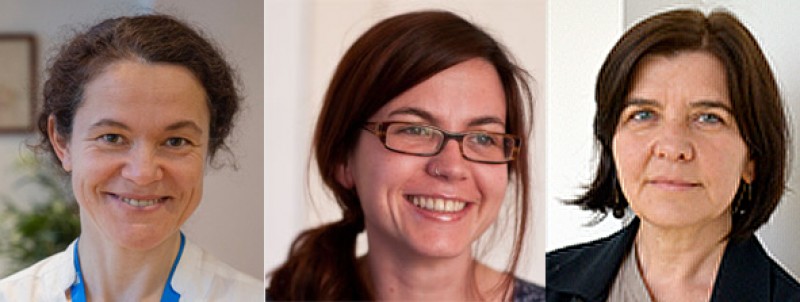KLI Colloquia are invited research talks of about an hour followed by 30 min discussion. The talks are held in English, open to the public, and offered in hybrid format.
Fall-Winter 2025-2026 KLI Colloquium Series
Join Zoom Meeting
https://us02web.zoom.us/j/5881861923?omn=85945744831
Meeting ID: 588 186 1923
25 Sept 2025 (Thurs) 3-4:30 PM CET
A Dynamic Canvas Model of Butterfly and Moth Color Patterns
Richard Gawne (Nevada State Museum)
14 Oct 2025 (Tues) 3-4:30 PM CET
Vienna, the Laboratory of Modernity
Richard Cockett (The Economist)
23 Oct 2025 (Thurs) 3-4:30 PM CET
How Darwinian is Darwinian Enough? The Case of Evolution and the Origins of Life
Ludo Schoenmakers (KLI)
6 Nov (Thurs) 3-4:30 PM CET
Common Knowledge Considered as Cause and Effect of Behavioral Modernity
Ronald Planer (University of Wollongong)
20 Nov (Thurs) 3-4:30 PM CET
Rates of Evolution, Time Scaling, and the Decoupling of Micro- and Macroevolution
Thomas Hansen (University of Oslo)
RESCHEDULED: 18 Dec (Thurs) 3-4:30 PM CET
Chance, Necessity, and the Evolution of Evolvability
Cristina Villegas (KLI)
8 Jan 2026 (Thurs) 3-4:30 PM CET
Embodied Rationality: Normative and Evolutionary Foundations
Enrico Petracca (KLI)
15 Jan 2026 (Thurs) 3-4:30 PM CET
On Experimental Models of Developmental Plasticity and Evolutionary Novelty
Patricia Beldade (Lisbon University)
29 Jan 2026 (Thurs) 3-4:30 PM CET
Jan Baedke (Ruhr University Bochum)
Event Details

Laura Nuño de la Rosa is a philosopher of biology working on the history and philosophy of developmental biology and evolutionary developmental biology (evo-devo). Graduated in Humanities, in 2010 she obtained a Master’s Degree in Biophysics at the Autonomous University of Madrid. In 2012 she obtained a PhD on the problem of organismal form in contemporary biology, at the Complutense University of Madrid and the Paris 1-Sorbonne University. She further joined the KLI Institute (Kloserneuburg, Austria) as a post-doc fellow. Between 2015 and 2018, she held a Juan de l a Cierva fellowship at the IAS-Research group, at the University of the Basque Country. In 2018 she j oined the Department of Logic and Theoretical Philosophy at the Complutense University of Madrid, first as a UCM postdoc fellow, and since April 2019 as a Juan de l a Cierva-Incorporación fellow. Her current interests combine research on the recent history of evolutionary biology with the study of epistemological and ontological issues in contemporary biology, as well as the social implications of biosciences, including synthetic biology, theories of reproduction, and current science of the COVID-19 pandemic.
Mihaela Pavlicev is evolutionary biologist with a wide range of interests. After finishing her PhD in Ecology in Vienna, 2003, she joined Natural History Museum in Vienna to work on molecular phylogenetics in reptiles and birds. This was followed by postdoctoral work in evolutionary quantitative genetics (in St. Louis and Oslo), and a senior postdoctoral fellowship at KLI, before taking a faculty position at the University of Cincinnati Medical School/ Cincinnati Children`s Hospital in Ohio in 2013. Since December 2019, she is professor for Theoretical Evolutionary Biology in the Department of Evolutionary Biology at the University of Vienna.


